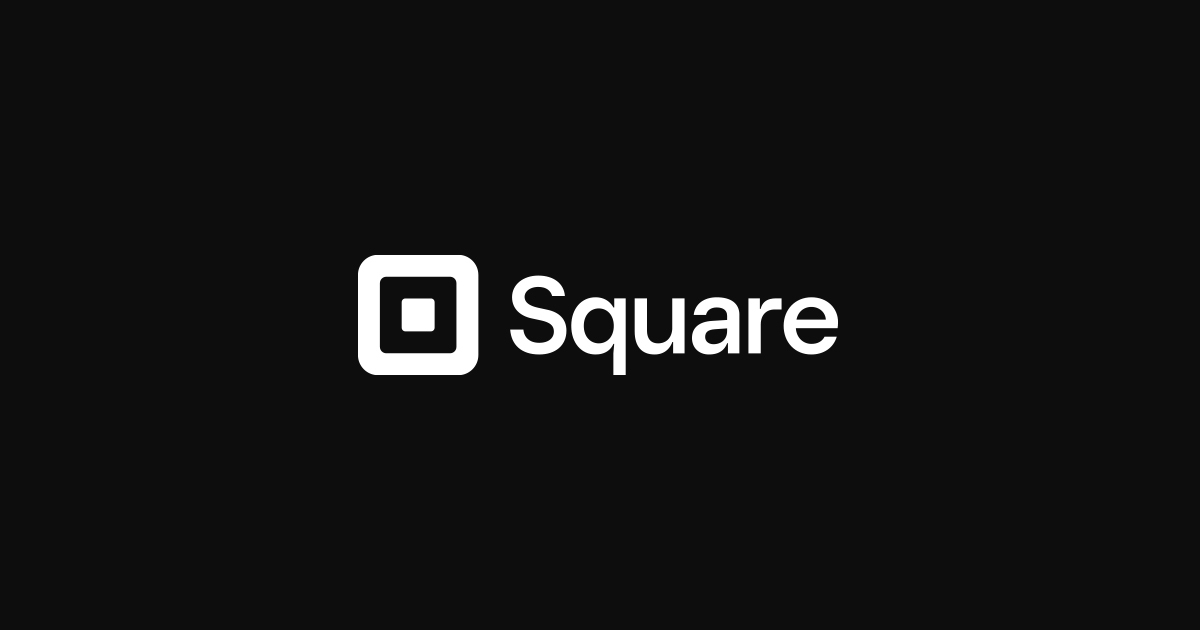5 Bitcoin Use Cases That Will Transform Our World By 2030
Bitcoin is set to change the world in ways we are only beginning to understand. Discover five innovative use cases that will shape our future in this 2023 guide.

Imagine a ledger that records transactions, but instead of being held by a single entity like a bank, copies of it exist simultaneously on thousands of computers worldwide. This ledger is transparent, secure, and cannot be tampered with due to its decentralized nature.
That, in essence, is Bitcoin. It's a system that allows for the transfer of value - the Bitcoin currency - across the internet, without the need for a central authority.
But Bitcoin's true potential extends far beyond financial transactions.
It's not just about transferring money; it's about transferring value, trust, and even data. With its decentralized and transparent nature, Bitcoin can transform not just the world of finance, but various other sectors, from energy to healthcare, remittance, data management, and rewards systems.
In this article, we will explore five ways in which Bitcoin could significantly reshape our world in the next decade.
These are not just theoretical speculations; they are grounded in ongoing developments and emerging trends in the Bitcoin and blockchain ecosystem.
They paint a picture of a future where Bitcoin becomes a cornerstone of a more decentralized, equitable, and efficient society.
Use Case 1: Clean Energy Bitcoin Mining: A Voluntary Carbon Credit Service Revolutionizing ESG Strategies
In the intersection of Bitcoin and environmental sustainability, a rather unexpected alliance is emerging. This alliance, specifically within the realm of clean energy and carbon credits, is transforming the narrative around Bitcoin's environmental impact. Far from being a mere energy consumer, Bitcoin is poised to be a catalyst for carbon neutrality and a new green economy.
Bitcoin and the Carbon Neutrality Mission
The United Nations has set an ambitious global mission: achieve carbon neutrality by 2050. Bitcoin, with its decentralized and open nature, could play a significant role in this mission. How? By leveraging clean, renewable energy for its operations, thereby reducing its carbon footprint.
- Bitcoin's Potential for Emission Reduction: Some estimates suggest that by December 2024, the Bitcoin network could reduce more emissions than the energy sources it uses. Advancements in Bitcoin mining techniques that harness renewable energy sources are key to this transformation, effectively turning Bitcoin mining operations into a new form of voluntary carbon credit service.

- The Rise of Voluntary Carbon Markets: Voluntary carbon markets, which enable businesses, governments, nonprofits, and individuals to offset their emissions, are growing rapidly. Projections indicate that the global voluntary carbon offsets market could reach between $10 billion and $40 billion.

The Role of Bitcoin in ESG Strategies and Consumer Empowerment
With these developments in mind, the future could see enterprises integrating clean-energy-fueled Bitcoin mining into their Environmental, Social, and Governance (ESG) strategies.
- Enterprises and Bitcoin Mining: By using Bitcoin mining as a carbon removal strategy, enterprises can not only offset their carbon emissions but also potentially generate revenue. Companies such as Block (Ticker Symbol: SQ) can play a big role here. Block is building an open-source bitcoin mining system and has previously talked about envisioning a cloud-based bitcoin mining service as well.

- Empowering Consumers: The integration of carbon credits into consumer platforms could also revolutionize online shopping. Consumers could have the opportunity to buy carbon credits when they shop online, contributing to emission reduction efforts and making climate-friendly choices seamlessly. For instance, AfterPay, a Buy Now Pay Later platform, offers a service to its customers to off-set their carbon emissions.
Learning from Tesla: The Potential Value of Carbon Credits
The example of Tesla, the leader in the electric vehicle industry, provides a valuable case study on the potential profitability of carbon credits.
- Tesla's Carbon Credit Revenue: Tesla has made substantial profits by leveraging the trend towards carbon reduction. In 2021 alone, Tesla's revenue from carbon credits amounted to $1.46 billion, accounting for 3% of its total revenue.

- Earning and Selling Carbon Credits: Tesla earns carbon credits due to its electric vehicles' significantly lower emissions compared to standard vehicles. These credits can then be sold to other manufacturers, providing Tesla with a significant revenue stream.

The Future: Bitcoin Mining Operations Powered by Clean Energy
Drawing parallels from Tesla's success, there's a potent potential for Bitcoin mining operations powered by clean energy.
- Earning Carbon Credits: Just like Tesla, these operations could earn carbon credits for being more environmentally friendly than the standard.
- Selling Carbon Credits: These credits could then be sold to other businesses, or potentially to consumers who wish to offset their own carbon emissions, providing a new source of revenue.
In essence, Bitcoin, through clean energy mining operations, could become a significant player in the voluntary carbon credit market. This would not only contribute to global efforts to achieve carbon neutrality but could also provide a new source of revenue for Bitcoin miners. Moreover, it could give consumers a new way to contribute to carbon reduction efforts, thereby transforming the way we approach environmental sustainability.

Use Case 2: A New Global Remittance Network: Revolutionizing Money Transfers with Bitcoin
At Bitcoin Conference 2023 in Miami, Florida, Mike Brock, CEO of TBD at Block reportedly said the following:
“We think remittances is probably the closest thing to a near-term killer app for bitcoin and stablecoins.”
The global remittance industry is in a state of flux, grappling with inefficiencies, high costs, and delays. Bitcoin, however, could be the game-changer. With its open-source blockchain technology, Bitcoin has the potential to transform the way money is transferred across borders, enabling faster, cheaper, and more transparent transactions.
Current Challenges in the Remittance Industry
The traditional remittance system is fraught with issues, including high transaction fees, slow processing times, and a lack of transparency. These challenges are particularly felt by individuals in developing countries, who rely heavily on remittances for their livelihoods.
The Role of Open-Source Blockchain Technology
Blockchain technology can enable secure and efficient cross-border transactions. With its decentralized nature, it can cut out the middlemen typically involved in remittances, resulting in faster, cheaper transactions.

Bitcoin-Enabled Remittance Services: The Case of Strike and Block
Companies like Strike and TBD @ Block are at the forefront of developing Bitcoin-enabled remittance services.
Strike, a mobile payment application developed by Zap Solutions, uses the Bitcoin blockchain to send and receive money.
Unlike traditional payment applications like PayPal, Strike uses the Lightning Network, a secondary layer of the Bitcoin blockchain, to execute transactions. This enables it to bypass the time-consuming settlement process on the main blockchain, making it ideal for frequent transactions and sending small amounts of money.
On April 12th, 2023, Block's TBD announced a partnership with Yellow Card to facilitate global payments in Africa via Bitcoin and stablecoin rails. The partnership aims to unlock a network of global fiat on- and off-ramps that bridge traditional payment rails to stablecoins and Bitcoin. This is a significant step towards mainstream adoption of Bitcoin and stablecoins in commercial and financial applications at scale.
Yellow Card offers payments via stablecoins and Bitcoin to banks and mobile money operators in 16 countries across Africa. Through the partnership with TBD, payments can be made from the United States to countries like Ghana, Nigeria, and Kenya in real time. This could potentially revolutionize remittances, making them more accessible and affordable for the African diaspora.
The Impact of the New Remittance Network
The advent of a Bitcoin-enabled remittance network could have profound implications for the global economy.
- Reduced Transaction Costs and Speed: The new remittance network could significantly reduce transaction costs and increase the speed of money transfers. This would particularly benefit individuals in developing countries who rely on remittances for their livelihoods.
- Increased Transparency: The transparency inherent in blockchain technology could also improve trust in the remittance process, as transactions can be easily tracked and verified.
- Financial Inclusion: The new remittance network could also promote financial inclusion by providing a more accessible and affordable means of transferring money across borders, particularly for unbanked populations.
In summary, Bitcoin, through innovative solutions like Strike and partnerships like the one between TBD and Yellow Card, could revolutionize the global remittance industry.
By leveraging Bitcoin's open-source blockchain technology, we could see a more efficient, transparent, and inclusive global remittance network in the coming years.
Use Case 3: Creating a New Self-Owned Data Economy with Bitcoin
As we venture deeper into the digital age, data is becoming an increasingly valuable commodity. Yet, the current data economy is fraught with issues, including data breaches, privacy concerns, and the unfair appropriation of value by large tech companies. A new paradigm is emerging in response: a self-owned data economy. And Bitcoin could play a pivotal role in its realization.
Understanding the Self-Owned Data Economy
In a self-owned data economy, individuals have control over their data. This includes deciding who can access their data, under what circumstances, and for what purpose.
Unlike the current data economy, where large tech companies collect and monetize user data without explicit consent, a self-owned data economy is based on consent, transparency, and fair value exchange.
Key aspects of a self-owned data economy include:
- Data Ownership: Individuals own their data and can control how it is used.
- Consent-Based Data Collection: Data is collected only with the explicit consent of individuals.
- Decentralized Data Storage: Data is stored on decentralized platforms, reducing the risk of data breaches.
- Data Monetization: Individuals can choose to monetize their data, receiving fair compensation for its use.
- Ethical Data Use: Businesses commit to using data ethically, respecting individual privacy and rights.
- Personalized Services: Businesses can offer personalized services based on consented data, improving the user experience.
- Collaborative Data Sharing: Data can be shared collaboratively, fostering innovation and value creation.
Benefits for Individuals and Businesses
A self-owned data economy offers numerous benefits for both individuals and businesses.
For individuals, it means greater control over their data, improved privacy, and the potential to receive compensation for their data. It also means more personalized and better-quality services, as businesses can use consented data to tailor their offerings.
For businesses, a self-owned data economy means improved trust and customer relationships, as they demonstrate respect for individual data rights. It also means access to higher quality data, as individuals are more likely to share their data if they trust the process and receive value in return.
Intersection of Bitcoin and the Self-Owned Data Economy
Bitcoin, with its decentralization and transparency, aligns well with the principles of a self-owned data economy. Its blockchain can serve as a secure and transparent ledger for data transactions, ensuring fair value exchange and protecting individual data rights.
Moreover, Bitcoin could provide a means of monetization in the self-owned data economy. Individuals could receive Bitcoin as compensation for their data, effectively receiving a "data dividend". This not only provides individuals with a tangible benefit for their data but also promotes the mainstream adoption of Bitcoin.
In summary, Bitcoin could play a pivotal role in creating a new self-owned data economy, transforming the way we think about data ownership, privacy, and monetization. As we move towards this new paradigm, we could see a more fair, transparent, and beneficial data economy emerge, powered by Bitcoin.

Use Case 4: An Innovative Customer-Centric Super App
As we move further into the digital age, the way we interact with the web is undergoing a radical transformation. A central part of this shift is the rise of the "super app" – a singular platform that integrates a multitude of services.
This concept, empowered by decentralized technology and Bitcoin, promises to revolutionize personal data management and user experience, particularly in the realm of healthcare.
Understanding the Super App
At its core, a super app serves as a one-stop-shop for various services, unifying them into a single, accessible platform. Think of it as a digital Swiss army knife – a tool that can adapt to a multitude of tasks, from social media and online shopping to travel booking and telehealth services.
The novel element here is the application of blockchain technology, specifically the idea of a decentralized web, or Web5. This new framework shifts the control of data and services from centralized entities to individuals, fostering a more balanced and fair digital ecosystem.
Data Control and Ownership: Alice's and Bob's Experiences
Consider the case of Alice, who uses a digital wallet to manage her identity, data, and external app authorizations securely. When Alice connects to a new decentralized social media app, she doesn't need to create a profile – her decentralized identity does the job.
All her connections, relationships, and posts are stored with her, in her decentralized web node. This ability to switch apps while carrying her social persona adds a layer of convenience and personalization without compromising data privacy.
Then there's Bob, a music enthusiast tired of vendor-locked silos that require him to recreate his playlists across various music apps. Bob uses his decentralized web node to store his music preferences. Any music app he grants access to can deliver a personalized experience, allowing Bob to carry his music experience wherever he chooses.
Envisioning the Super App as a Digital Wallet
Now, imagine a digital wallet that serves as a super app. It offers a unified platform for various decentralized web apps, from travel and music to e-retail, telehealth services, and social media. Each app operates within the digital wallet, using the same decentralized identity and accessing the same user-controlled data.
This super app doesn't just streamline user experience – it revolutionizes personal data management. Users own and control their data, granting access on a consent basis and ensuring their privacy is protected. This shift to a self-owned data economy could disrupt various industries, with healthcare being a key area of transformation.
The Role of Bitcoin in Enabling Super Apps
Bitcoin, with its decentralized nature, plays a crucial role in enabling super apps. Bitcoin can facilitate transactions within the super app, providing a secure, transparent, and efficient means of exchanging value.
Furthermore, the use of Bitcoin's blockchain can ensure that all data transactions within the super app are verifiable and tamper-proof, enhancing data security and user trust.
For instance, Web5 will leverage ION- a bitcoin-powered open, public, permissionless, decentralized, identifier network in its infrastructure.
Use Case 5: Revolutionizing Digital Engagement Through Bitcoin-Based Rewards
In the digital age, how brands engage with their audience matters more than ever. Social media and digital marketing have opened up new avenues for interaction, but the landscape is constantly evolving, and brands must stay ahead of the curve.
Enter Bitcoin-based rewards – a new approach that promises to significantly improve the effectiveness of social media campaigns and digital engagement strategies.
Understanding Bitcoin-Based Rewards
At its heart, the concept of Bitcoin-based rewards is straightforward. It involves using Bitcoin, or fractions of Bitcoin called Satoshis, as incentives or rewards for certain actions or behaviours.
The application of this idea extends across various domains – from social media campaigns and digital marketing to employee engagement programs and customer loyalty schemes.
Revolutionizing Social Media Engagement with Bitcoin-Based Rewards
The potential of Bitcoin-based rewards in transforming social media engagement is immense. By offering Bitcoin-based rewards, brands can incentivize user interactions, such as shares, likes, comments, or content creation. This encourages active participation from the audience, leading to higher engagement levels and more effective campaigns.
Moreover, Bitcoin-based rewards provide immediate gratification – a key driver of user behaviour in the digital space. Upon completing a certain action, users receive their reward instantly, reinforcing positive behaviour and fostering a sense of achievement.
Lightning Rewards: A Case in Point
A prime example of this concept in action is Microstrategy's Lightning Rewards. This Bitcoin-based reward system offers instant Satoshi redemption to incentivize a wide range of behaviours.

For customers, these could include signing up for a service, making purchases, subscribing to a newsletter, or referring new customers. For employees, Lightning Rewards could be used to incentivize meeting attendance, healthy behaviours, community contributions, and more.
The flexibility and configurability of Lightning Rewards make it a powerful tool for engagement. Reward rules can be customized based on events, users, dates, and reward amounts, allowing brands to tailor their incentives to their specific goals and audience.
Moreover, Lightning Rewards can be integrated with most enterprise applications quickly and securely, ensuring scalability and high security.
The Future of Rewards and Incentives with Bitcoin
Looking ahead, Bitcoin-based rewards are set to play a transformative role in digital engagement strategies. Their potential extends beyond social media campaigns to include loyalty programs, employee engagement, and more.
Furthermore, the use of Bitcoin-based rewards enables brands to tap into the benefits of Bitcoin's blockchain technology, such as transparency, security, and trust. This could revolutionize the way rewards and incentives are managed, fostering a more engaging and rewarding digital experience.
In conclusion, Bitcoin-based rewards represent a novel approach to digital engagement, with the potential to enhance social media campaigns, improve brand loyalty, and foster a more engaging digital experience. As the world continues to embrace digital interactions, the role of Bitcoin in revolutionizing rewards and incentives is set to grow.
Conclusion
In this journey, we've explored the transformative potential of Bitcoin beyond its commonly understood role as a digital asset. From catalyzing a green economy and revolutionizing remittances to enabling a self-owned data economy and fostering a new digital engagement paradigm, the potential of Bitcoin is both vast and profound.
These use cases represent just the tip of the iceberg. Bitcoin, with its underlying blockchain technology, has the power to impact the entire digital world in ways that we are only beginning to understand.
Much like how fiat currencies permeate every aspect of our physical world, Bitcoin could become an integral part of the digital landscape, influencing how we interact, transact, and engage in the online realm.
Taking a long-term view of Bitcoin is critical to understanding its true potential. In the grand scheme of things, we're still in the early stages of the Bitcoin revolution.
Even 120 years from now, in the year 2140, we would have just completed Chapter 1 of the Bitcoin story. That's when the last Bitcoin will be mined, and the currency will be ready to be used without any more inflationary effects.
Imagine the possibilities from there! As Bitcoin evolves and matures, we can expect to see even more innovative applications and use cases, shaping our world in ways we can't even imagine yet. The future of Bitcoin holds promise and excitement, and it's a future that we should all look forward to with anticipation.
Speaking of imagine: The year is 2140! Last bitcoin has already been mined. Now, the world is on a quest to find the private key to Satoshi's 1.1 Million Coins. What happens next? Read our stories to find out!




